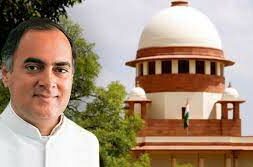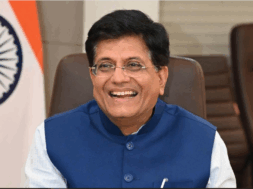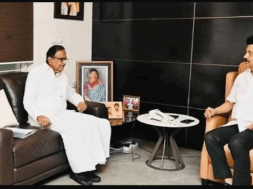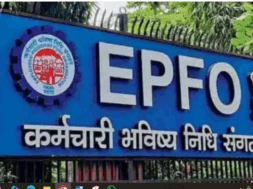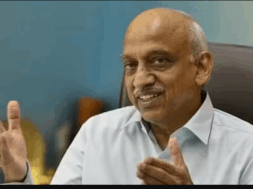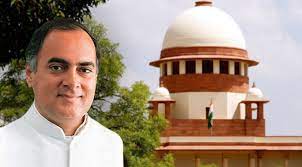
SC Orders Release of all Six Convicts in Rajiv Gandhi Assassination Case, Congress Oppose Even as Gandhis Concur
Manas Dasgupta
NEW DELHI, Nov 11: The Supreme Court on Friday ordered for the immediate premature release of all the six remaining convicts in the Rajiv Gandhi assassination case since they have already served more than three decades in the prison even as their death penalty was converted to life imprisonment by the apex court earlier.
A Bench of Justices B. R. Gavai and B. V. Nagarathna said the apex court was using its special powers under the article 142 of the Constitution in ordering the release of the six convicts since the Tamil Nadu governor had failed in his duty to act on the recommendations of the state cabinet.
The bench noted that the Tamil Nadu state cabinet had in September, 2018 recommended their premature release to the governor but the governor instead of taking a call had passed on their files to the Centre. The Governor was bound by the advice of the Cabinet in cases of murder as their convictions under the now-lapsed Terrorism and Disruptive Activities (Prevention) Act was set aside by the apex court.
The six convicts are: Nalini, Ravichandran, Jayakumar, Suthenthiraraja @ Santhan, Murugan and Robert Pius.
The Congress and the Gandhi family, however, have adopted different stand on the Supreme Court’s release order. While the wife of the assassinated prime minister Sonia Gandhi and her two children, Rahul Gandhi and Priyanka Gandhi had earlier stated that they had “pardoned” his killers and had favoured their release on humanitarian grounds, the Congress on Friday said the decision was “totally unacceptable” and the party would explore all possible legal remedies to challenge the decision.
In this respect the Congress said it shared the opinion of the central government which did not take a call on the Tamil Nadu government’s recommendation for the premature release of the assassins of a former prime minister. “The decision of the Supreme Court to free the remaining killers of former PM Rajiv Gandhi is totally unacceptable and completely erroneous. The Congress Party criticises it clearly and finds it wholly untenable. It is most unfortunate that the Supreme Court has not acted in consonance with the spirit of India on this issue,” said Congress general secretary Jairam Ramesh.
The Congress spokesperson and noted lawyer Abhishek Manu Singhvi while slamming the apex court order said, the party even “disagreed with Sonia Gandhi” on this. Stressing that it would explore all legal remedies, he said, “In this case, the Congress views are the same as the Central government’s. The party does not agree with Sonia Gandhi’s view, has never agreed with that view, and has made this view clear for years.”
The apex court in issuing the release order, referred to the case of their former co-convict AG Perarivalan who was granted premature release by the apex court on May 18 in exercise of its extraordinary powers. The May judgment had concluded that the State of Tamil Nadu, and not the Union, had exclusive power to recommend remission in the case.
Shortly after the release of Perarivalan, Nalini and Ravichandran had approached the apex court for parity. The other four convicts had joined in by filing separate applications in the Supreme Court. Ordering them to be “set at liberty forthwith”, Justices Gavai and Nagarathna also took into account the fact that each of the six convicts had individually exhibited satisfactory conduct during their long incarceration. They had earned postgraduate degrees and diplomas while serving their sentence. Santhan had published poems and articles and won awards in France and Germany. In Nalini’s case, the court said she was a woman and had already spent more than 30 years in incarceration.
A recent affidavit filed by Tamil Nadu, represented by advocate Joseph S. Aristotle, had agreed with the petitioners when it said the State Governor was bound by the advice of the State Cabinet, proposing the premature release of convicts Nalini and others in September 2018.
The State had contended that the Governor, instead of acting on the recommendation of the Cabinet to remit their life sentence, had kept the files pending for over two and half years before finally forwarding it to the President in January 2021. The State said the President had also not taken a decision for the past one year and nine months. It said Nalini has been incarcerated in the Special Prison for Women, Vellore, for the past 30 years, four months and 25 days.
The Madras High Court had in June dismissed the writ petitions filed by Nalini and co-accused Ravichandran, who had sought a direction to the Tamil Nadu government to release them forthwith without waiting anymore for the Governor’s nod to a September 9, 2018 Cabinet recommendation. The High Court had held that it could not exercise extraordinary powers under Article 142 to pass an Order similar to the one which released Perarivalan by the Supreme Court.
In its judgment in the Perarivalan case in May, the apex court had held that the State Cabinet’s advice was binding on the Governor under Article 161 (Governor’s power of clemency) of the Constitution. The Governor had no business forwarding the pardon pleas to the President after sitting on it for years together.
“The advice of the State Cabinet is binding on the Governor in matters relating to commutation/remission of sentences under Article 161. No provision under the Constitution has been pointed out to us nor any satisfactory response tendered as to the source of the Governor’s power to refer a recommendation made by the State Cabinet to the President of India. In the instant case, the Governor ought not to have sent the recommendation made by the State Cabinet to the President. Such action is contrary to the constitutional scheme,” the Supreme Court had held. It said the Governor’s delay to decide Perarivalan’s pardon for over two years compelled the court to employ its constitutional powers under Article 142 to do justice to him.
Rajiv Gandhi was assassinated on May 21, 1991, at Sriperumbudur in Tamil Nadu by a woman suicide bomber at a poll rally. She was later identified as Dhanu, of the Sri Lankan Liberation Tigers of Tamil Eelam (LTTE) group. Seven convicts were sentenced to death for their peripheral roles in the killing. In 2000, Nalini Sriharan’s sentence was reduced to a life term on the intervention of Sonia Gandhi, while In 2008, Priyanka Gandhi Vadra, the daughter of Rajiv Gandhi, met Nalini in Vellore jail. The sentence of six more convicts was also commuted in 2014. The same year, then Tamil Nadu Chief Minister J Jayalalitha initiated moves to free them.
Sonia Gandhi had urged the court to show clemency to Nalini, who was pregnant when she was arrested. “Sonia Gandhi gave the statement years ago,” Mr Singhvi, pointed out and added, “We are consistent about our stand. This is an institutional matter. The sovereignty, integrity and the identity of a nation is involved in the assassination of a former Prime Minister,” said the Congress leader.
The Rajiv Gandhi assassination case stirs deep emotions in Tamil Nadu and every government in the state, whether led by the AIADMK or DMK, has campaigned for their freedom after decades in jail. Many in Tamil Nadu believe that the seven prisoners played minor roles in the assassination of Rajiv Gandhi and were duped into taking part in a plot they knew little about.
The Terrorist and Disruptive Activities (Prevention) Act (TADA) trial court had initially sentenced 26 people to death in the case. In 1999, a few years after the TADA Act was allowed to lapse, the Supreme Court upheld the conviction of only seven people, releasing all others. The SC order observed none of those convicted was part of the nucleus of the assassination team.
Of the seven convicts serving life terms in the case, in 1999, the Supreme Court sentenced four of them to death and the other three to life imprisonment. In 2000, the death sentence of Nalini, was commuted to life. In 2014, the Supreme Court commuted the remaining three death sentences, including that of Perarivalan.
On January 22, 2021, the Centre told the Supreme Court that the Tamil Nadu Governor was set to take a call on the release. Then, on January 25, the Governor’s office left it to President Ram Nath Kovind to take a decision on the pardon of all these convicts. The Centre told the court “the proposal received by the central government will be processed in accordance with the law”.
But in May this year, Perarivalan was “set at liberty forthwith” by the Supreme Court, which used its extraordinary powers “for doing complete justice” under Article 142 of the Constitution.
Nalini Murugan, the daughter of a nurse and a police officer in Chennai and a graduate of a prominent Chennai college. Now in her mid-fifties, Nalini was the only among the seven convicts present at the assassination spot in Sriperumbudur where Gandhi was killed. Later, photographs showed Nalini with the alleged assassins before Rajiv Gandhi’s arrival.
After the killing, Nalini and her husband Murugan, another accused, left Chennai and hid out in various places for more than a month until their arrest. Nalini was then pregnant. Their daughter was later born and raised in prison until age five.
Nalini and Murugan have never met their daughter after she left prison and was raised by another family, said Nalini’s counsel M Radhakrishnan. The Supreme Court verdict in 1999 observed that Nalini was an obedient participant with no key evidence to establish she was part of the conspiracy. “… She wouldn’t have dared to retreat from the scene as she was tucked into the tentacles of the conspiracy octopus from where it was impossible for a woman like Nalini to get herself extricated,” it said. The Supreme Court in a majority order sentenced her to death but in 2000, the sentence was commuted to life following a plea by Sonia Gandhi.
RP Ravichandran is an Indian national who was close to the Tamil Eelam movement in the 1980s, Ravichandran is said to have had close links with LTTE leaders before the armed group was actually formed. Prosecution charges said Ravichandran had visited Sri Lanka several times in the mid-1980s via sea. In fact, several leading politicians from Tamil Nadu also visited LTTE strongholds in Sri Lanka during the period. However, conspiracy charges against Ravichandran were struck down in 1999 by the SC, which also suspended TADA provisions from the case.
Santhan, a Sri Lankan citizen, who is believed to have fled then strife-torn Sri Lanka in 1991 and reached India by boat, along with Sivarasan (who led the assassination team and was never caught alive) and a few others. According to the Supreme Court order, his role in the killing was direct and active. He was one of those initially sentenced to death — along with Perarivalan, Nalini and Murugan — before their sentences were commuted to life.
Nalini once recalled that Murugan was one among many Sri Lankan youth who fled the country and reached Chennai, hoping to go abroad. He was her brother’s friend, and stayed at their home briefly. Nalini’s first meeting with Sivarasan was through Murugan.
Robert Pius, now 55, is another Sri Lankan citizen, who had come to India with his wife and sisters in September 1990. He is believed to have had links with the militant group LTTE. Pius was also accused of a close association with Sivarasan. While the court took note of his involvement in the conspiracy, it observed he was also a man who faced atrocities from the Indian Peace Keeping Force (IPKF) in Sri Lanka and had lost a child in that period.
Jayakumar, brother-in-law of Pius, had reached India along with Pius. The prosecution accused him of serious involvement in the killing, citing his close association with Sivarasan. Jayakumar was also a victim of alleged atrocities during IPKF action in Sri Lanka.
Perarivalan was only 19 when he was arrested in June 1991. He was accused of having bought two battery cells for Sivarasan. During the probe, one piece of evidence was a decoded radio message sent on May 7, 1991 by Sivarasan to LTTE leader Pottu Amman in Sri Lanka: “Our intention is not known to anybody except us three.”
While conspiracy charges against many others including Nalini and Ravichandran were dismissed by the Supreme Court, it upheld the conspiracy charges against Perarivalan as the Bench found it “believable” due to his TADA confession statement, which was taken by a CBI SP in custody.
